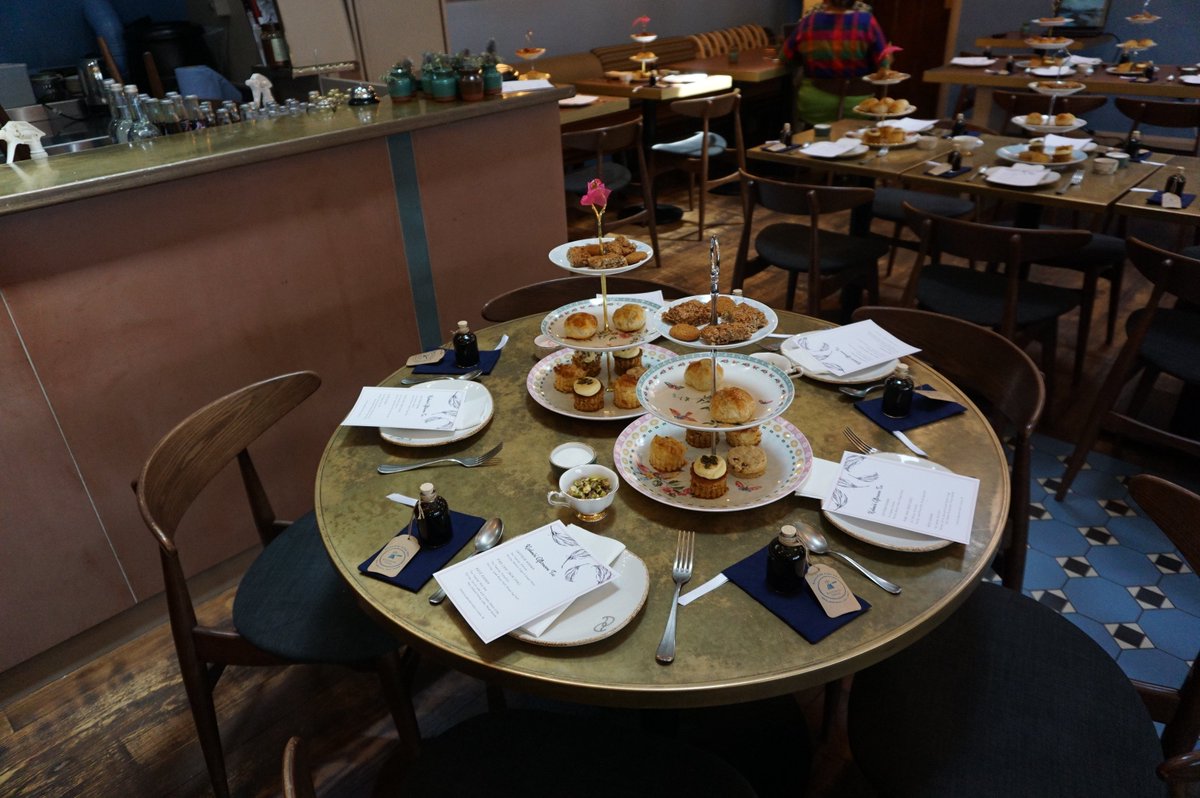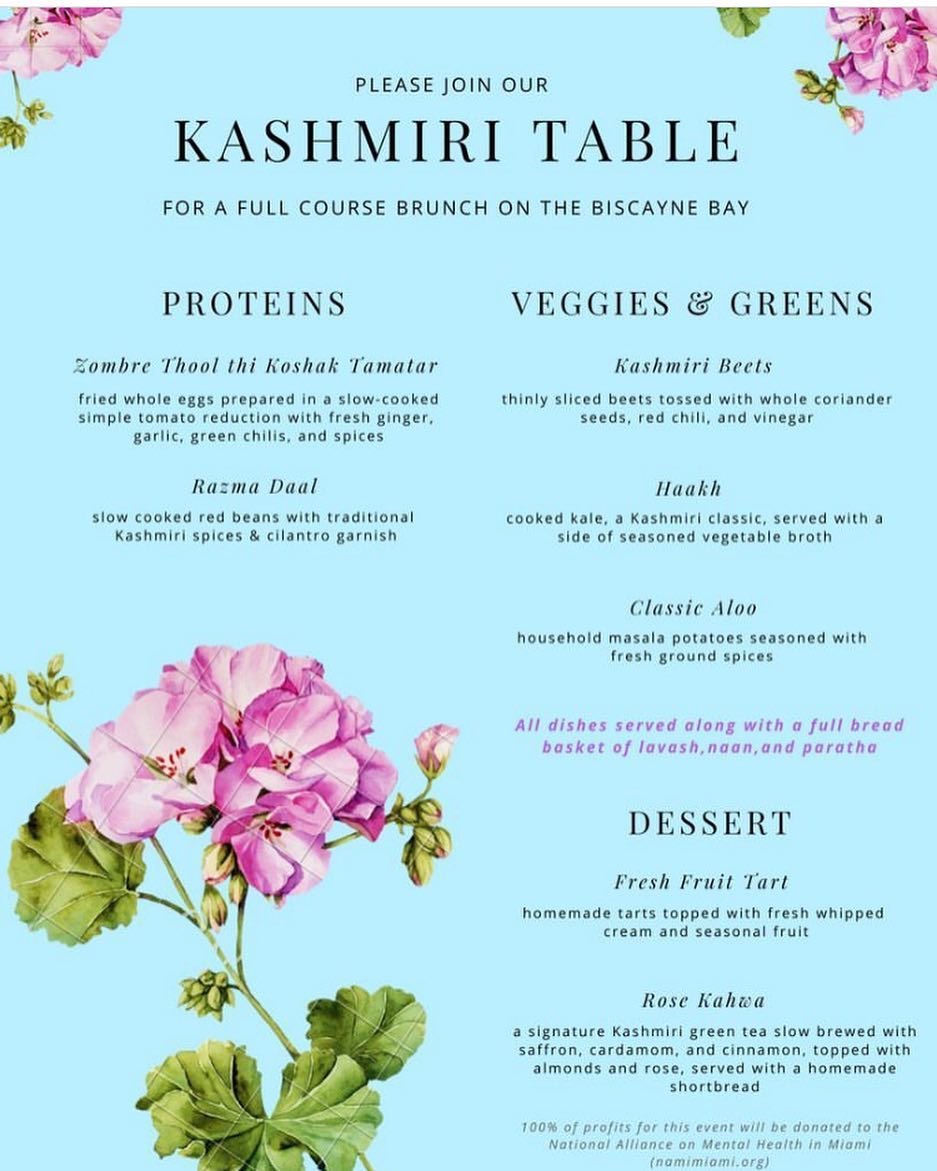Driven by the motto of promoting Kashmiri cuisine and food outside the valley, two Kashmiri cousins have come together to set up the ‘Kashmiri Table’. By serving local Kashmiri flavours in London and US, the duo is drawing attention towards Kashmiri cuisine.
Beyond mountains and the valley, air filled with the warm smell of fresh Czhot (Kashmiri bagel) and Nunchai (Kashmiri salt tea) is being counted as one of the fondest memory for those associated with Kashmir. The absence of this usual Kashmiri breakfast might’ve bothered Kashmiri expatriates for long — but now, this nostalgia is taking an interesting form.
Two cousins from Srinagar, Asma Bandey and Samma Ishaq Hafeez, based in London and US respectively, have set out to sprinkle about some “Kashmiriness” with their event organizing initiative called Kashmiri Table, in London, Boston and New York.
“We grew up enjoying and loving Kashmiri food in our homes, made by our mothers and aunts,” says Asma. “But when we left home for the University, it was almost impossible to find the tastes of home anywhere. So we came up with this platform to help people like us to get access to our local tastes.”
The duo organises these events in addition to managing their professional lives.
“We would visit Srinagar almost every year,” Asma continues. “The summers were always filled with fun. Being with the cousins is probably the highlight – being in the gardens and enjoying Nunchai together.”

The duo’s initiative is an offshoot of the creative display by the young Kashmiris across the world in the recent times.Their events have been chiefly focused on arts, music and fashion.
Likewise, Kashmiri Table organises events with the aim to introduce a wholesome, authentic and regular ‘Kashmiri table’ to these metropolitan cities with diverse cultures.
Asma and Samma have already hosted a chain of events, inspired to put the Kashmiri culinary on the global platform for the world to dig in. It sure may not be easy to maintain their roots and live the culture while living outside of Kashmir, but the cousins make sure that they instil Kashmiriness, atleast, in their routine.
Their venture roots back to the reason that Kashmiri food culture outside the valley isn’t quite original. Claiming their never-ending love for Rista, Ghoshtaba, Tabakhmaaz and other common items that are sold at various restaurants outside Kashmir, the duo take pride in bringing everyday items to the table like Bamm Tsoont, Monge Dal, Yakhin Ti Maaz, Adhrak Kokur, Khanyari Kebab, Beets and Haakh. Their Kashmiri Table has also put Saffron Kahwa, Nunchai and Rose Kahwa in their menu.
“We sell tickets online so the audience can be from absolutely anywhere. People in metropolitan cities are always curious about new foods and cultures,” Samma says. “We had talked about it for years and then finally decided the time was right! We live in cities where people are very interested in food from around the world so the environment seemed right to give it a go.”
Talking about the diverse crowd, the cousins affirm that the company they get to host is significantly inclusive, walking in from various parts of the world.
The events aren’t just about food. It’s focused on recreational experiences to correct the taboo revolving around Kashmir. Kashmiri Table sketches the other side of the coin by un-clouding the doubts that usually surround the narrative that Kashmir “isn’t a safe place” or “it’s a war-zone bereft of life”.
The duo feels that Kashmir is yet to be introduced with the idea of supper clubs that introduce and expand food culture. While they’re on it, their next event will be in New York, in collaboration with Suki Se, an ethical Pakistani-American fashion brand, which will bring together tea and fashion.
Having been featured on Conde Nast, a luxury and lifestyle magazine and Eater, a publication that collects food stories from around the world, Kashmiri Table has already gathered quite a word around London and Miami within a span of a few months.

Talking about the food served on the events, Samma says, “this varies all the time, but we always try to have a menu that is balanced to all tastes – something for vegetarians, something for meat-eaters and so forth.”
It’s the simplest dishes, Asma says, that people usually ask for, like Gazar ti Maaz, Sabz Haakh, Zomr Thool. “People always enjoy the Kahwa before and after the meal.”
The duo mainly looks up to their mothers, grandmothers and the rest of women for the recipes. Many times they look for ways to break the long process, in order to make it less time consuming. “We modify their recipes sometimes to make them quicker to cook,” Samma says.
“We want people to join our events to learn about Kashmiri culture,” Asma says. Food culture is a great way to bring people together.”

